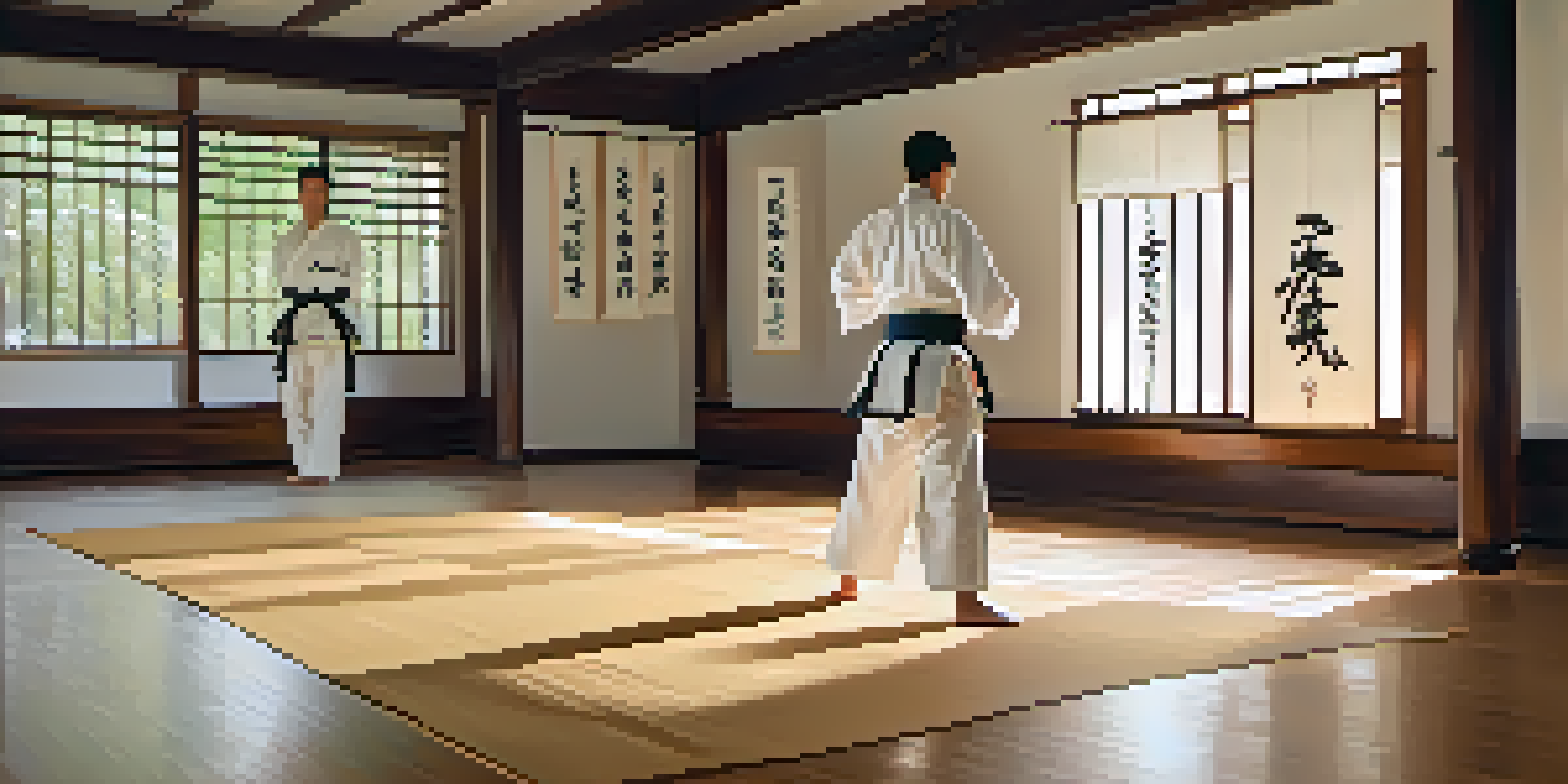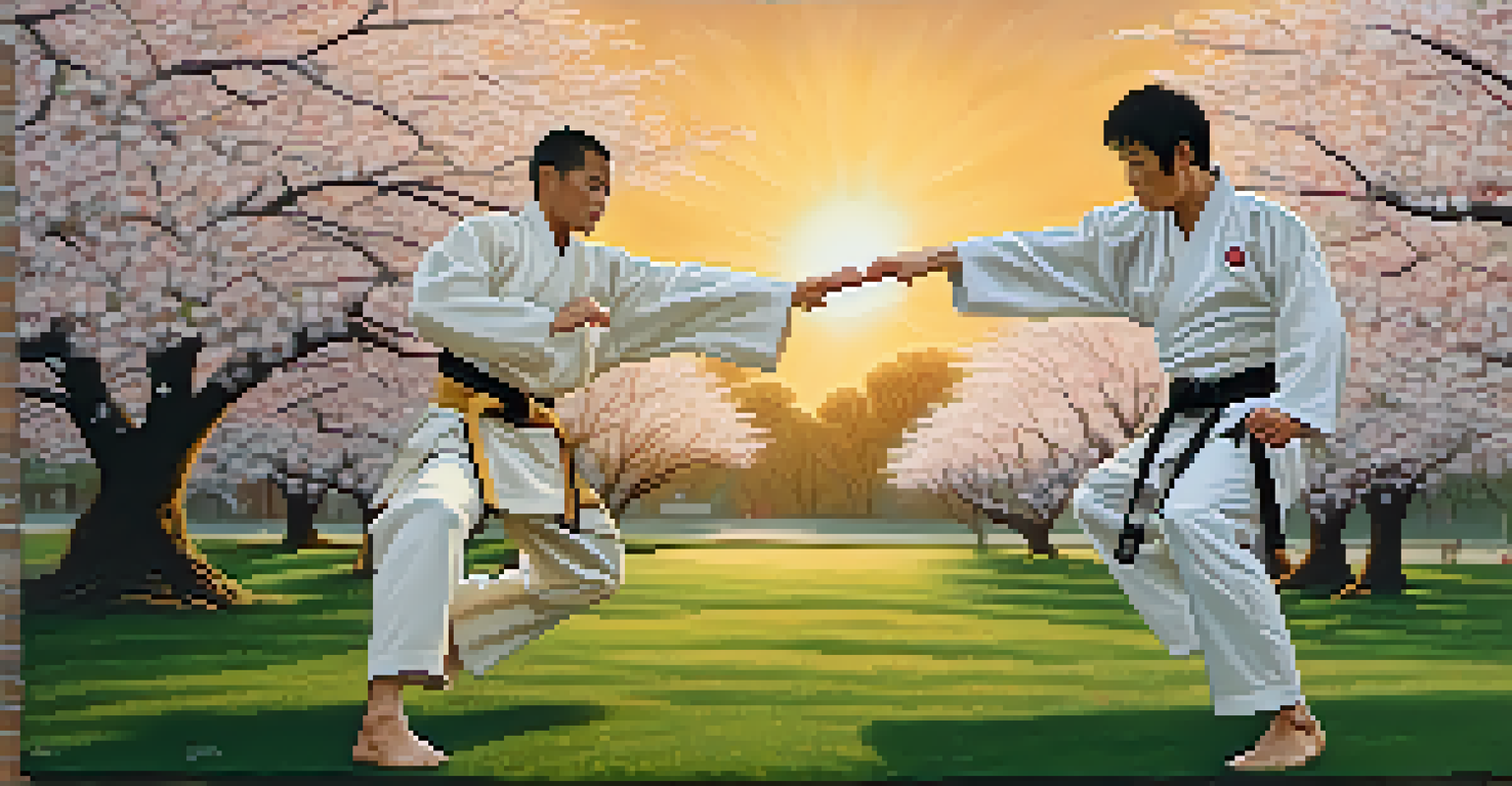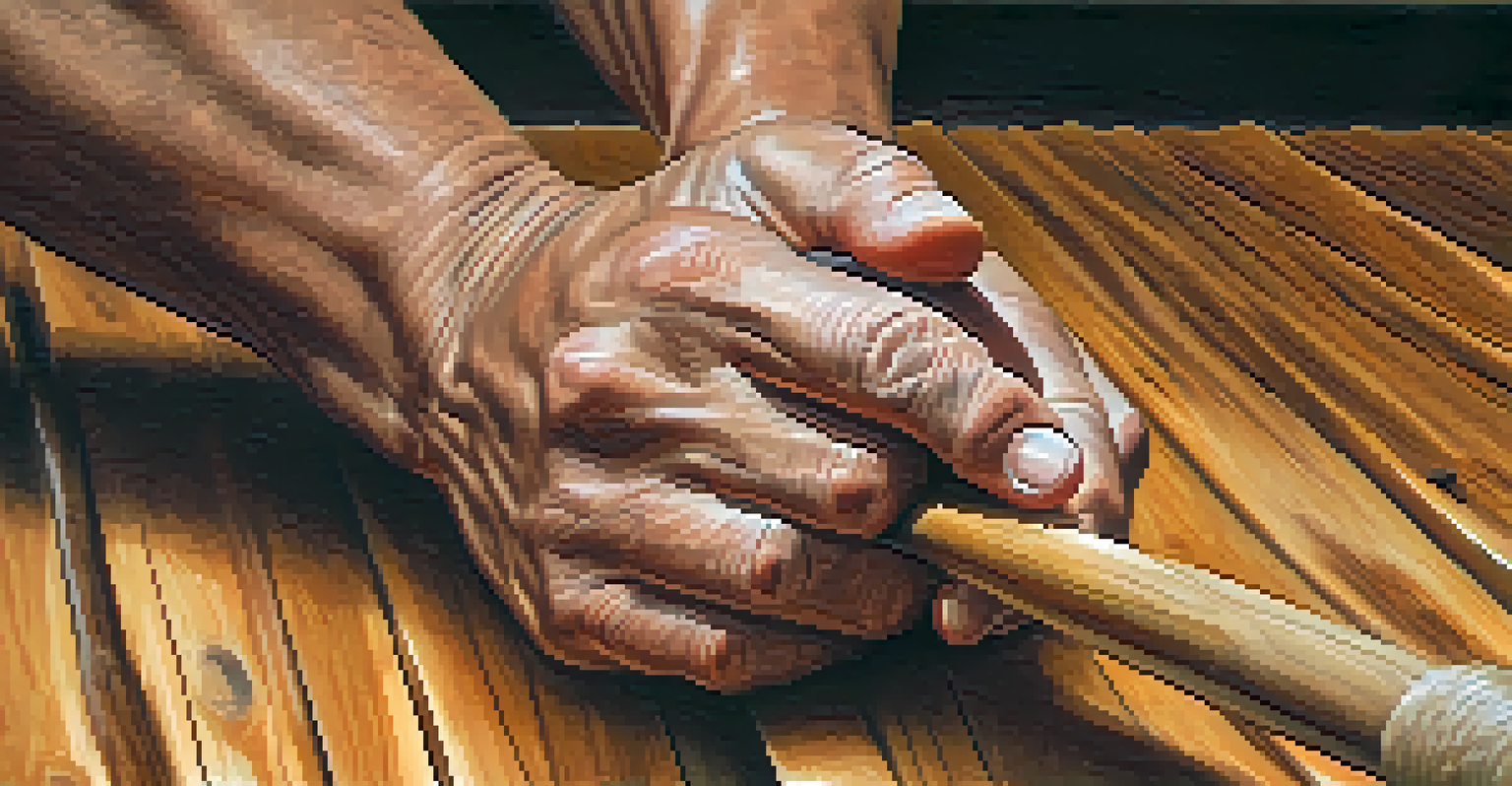Martial Arts Philosophy: A Path to Non-Violent Conflict Resolution

Understanding the Core Philosophy of Martial Arts
At its heart, martial arts is more than just physical combat; it embodies a philosophy that emphasizes discipline, respect, and self-control. This foundational mindset encourages practitioners to approach conflicts with a calm and rational perspective rather than through aggression. By focusing on personal growth and mental clarity, martial arts fosters an environment where non-violent solutions can thrive.
The ultimate aim of martial arts is not having to use them.
For example, many martial arts schools teach the concept of 'Yin and Yang,' highlighting the balance between opposing forces. This principle can be applied to conflict resolution, where understanding both sides of a disagreement is crucial. By recognizing that every situation has multiple perspectives, martial artists learn to navigate conflicts with empathy and insight.
Ultimately, this philosophy encourages practitioners to see conflict as an opportunity for growth rather than a battle to be won. By shifting the focus from aggression to understanding, martial arts cultivates a mindset that prioritizes peaceful resolution over violence.
The Role of Self-Discipline in Conflict Management
Self-discipline is a cornerstone of martial arts training, teaching individuals to control their impulses and emotions. This skill is invaluable when faced with conflict, as it allows practitioners to respond thoughtfully rather than reactively. The practice of controlling one's breath and movements in martial arts translates directly to managing one's emotions in tense situations.

For instance, a martial artist who feels provoked may remember their training and choose to pause, assess the situation, and respond with composure. This ability to step back and reflect before acting can dramatically alter the outcome of a conflict, steering it away from violence. It's a powerful reminder that the first response doesn't have to be a retaliatory one.
Conflict as Growth Opportunity
Martial arts teaches practitioners to view conflicts as chances for personal growth and understanding rather than battles to be won.
Ultimately, the self-discipline learned through martial arts empowers individuals to approach conflicts with a level head. This proactive mindset not only benefits the individual but also encourages a more harmonious environment for everyone involved.
Emphasizing Respect for Others in Martial Arts
Respect is a fundamental value in martial arts, ingrained in every aspect of training and practice. This respect extends not only to instructors and fellow students but also to opponents and the broader community. By cultivating respect, martial artists learn the importance of valuing others' perspectives, which is essential in conflict resolution.
It's not about being better than someone else; it's about being better than you used to be.
When faced with a disagreement, a martial artist is more likely to listen actively and consider the other person's viewpoint. This respectful approach can defuse tension and pave the way for constructive dialogue. By prioritizing understanding over hostility, martial artists exemplify how respect can be a bridge to peaceful conflict resolution.
Moreover, this principle of respect fosters a sense of community among practitioners. It reinforces the idea that everyone is on a shared journey of growth, making it easier to navigate disputes with compassion and understanding.
The Importance of Mindfulness in Conflict Situations
Mindfulness is a key component of martial arts training, teaching individuals to be present and aware of their thoughts and feelings. This awareness is crucial during conflicts, as it helps practitioners recognize their emotional triggers and reactions. By practicing mindfulness, martial artists can maintain control and respond rather than react in heated situations.
For example, a martial artist who practices mindfulness might notice their heart racing in a conflict and take a moment to breathe deeply. This pause allows them to regain composure and respond thoughtfully rather than impulsively. Such mindful responses can lead to more productive conversations and resolutions.
Self-Discipline in Conflict Resolution
The self-discipline learned in martial arts allows individuals to respond thoughtfully to conflicts rather than react impulsively.
Incorporating mindfulness into everyday life can transform how individuals handle conflicts. It empowers practitioners to approach disputes with clarity and intention, fostering a more peaceful and constructive environment.
Martial Arts as a Path to Emotional Intelligence
Emotional intelligence, or the ability to understand and manage one's emotions and those of others, is a vital skill in conflict resolution. Martial arts training enhances emotional intelligence by teaching practitioners to recognize their emotions and navigate interpersonal dynamics. This awareness is essential when mediating conflicts, as it fosters empathy and better communication.
For instance, a martial artist who has developed emotional intelligence can sense when a conversation is becoming heated and consciously steer it back to a productive tone. This skill set not only benefits the individual but also positively influences their relationships and community interactions.
As martial artists refine their emotional intelligence, they become more equipped to handle conflicts with grace and understanding. This not only leads to personal growth but also contributes to a more peaceful society overall.
The Concept of Harmony in Martial Arts Philosophy
Harmony is a central tenet in many martial arts, emphasizing the balance between opposing forces. This concept can be applied to conflict resolution by encouraging individuals to seek common ground rather than focusing solely on differences. By striving for harmony, martial artists learn to view conflicts as opportunities to create understanding and collaboration.
For example, during a disagreement, a martial artist might reflect on how both parties can benefit from a compromise. This perspective shifts the focus from winning or losing to finding a solution that respects everyone's needs. Such an approach fosters greater cooperation and reduces the likelihood of escalation.
Emphasizing Respect and Mindfulness
Practicing respect and mindfulness in martial arts fosters better communication and empathy, leading to more peaceful conflict resolutions.
Ultimately, the pursuit of harmony in martial arts serves as a powerful reminder that conflict can be a catalyst for unity. By embracing this mindset, practitioners can navigate challenges with a spirit of cooperation and mutual respect.
Applying Martial Arts Principles to Everyday Conflicts
The principles learned through martial arts training extend far beyond the dojo and can be applied to everyday conflicts. Whether it's a disagreement at work or a misunderstanding with a friend, martial artists can utilize their training to foster peaceful resolutions. By practicing self-discipline, respect, and mindfulness, individuals can create a positive impact in their interactions.
For instance, when facing a conflict with a colleague, a martial artist might approach the conversation with an open mind and a focus on mutual respect. This not only helps resolve the issue at hand but also strengthens the overall relationship. The skills developed through martial arts can transform everyday challenges into opportunities for growth.

By integrating these principles into daily life, martial artists become ambassadors of peaceful conflict resolution. Their approach sets an example for others, creating a ripple effect that can lead to a more harmonious community.